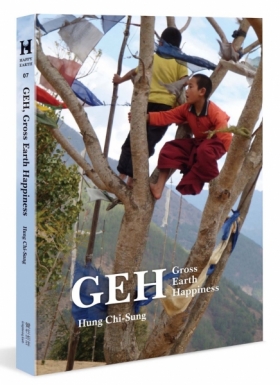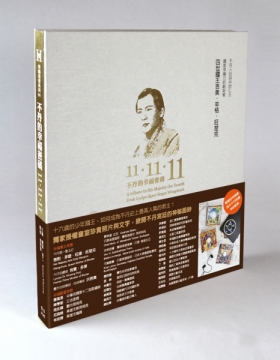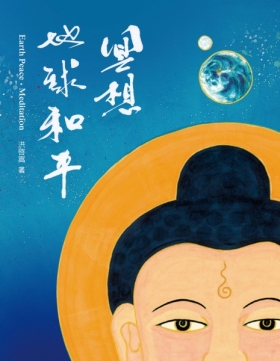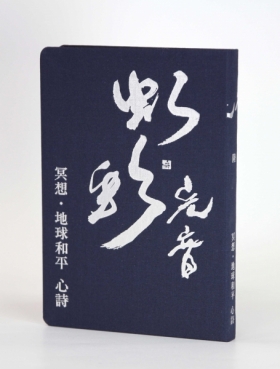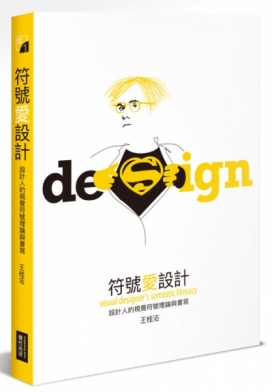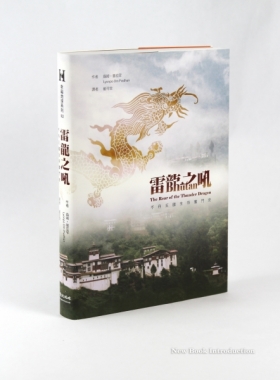The GNH ideology of Bhutan acts as a catalyst for happiness, challenging the dominant paradigm of economic development as the sole metric of progress and prompting individuals to reassess the true essence of happiness in life. It calls upon governments to integrate happiness into policy planning.
We believe that Bhutan's Gross National Happiness concept is not only relevant to Bhutan but also serves as an important reference for every country and the entire world to pursue happiness and well-being.
Moving ahead, there is anticipation that alongside national happiness indices, a collective "Gross Earth Happiness" index could emerge, enhancing the overall well-being of humanity and nurturing a more harmonious cosmic civilization within the galaxy!
不丹的GNH思想,宛如幸福的火種,改變人類以經濟為發展單一量尺的價值觀,啟發人們重新省思生命的幸福,促使政府將幸福納入政策規劃。
我們認為不丹的國家幸福力思想,不只針對不丹,更能作為世界上的每一個國家及全體地球創發幸福的重要參考。
期待在未來,除了各國的幸福力,更能成全地球加總的「地球幸福力」,形成整體文明的幸福指數,在銀河中創造更美好的宇宙文明!
《GEH, Gross Earth Happiness》Contents
Author Preface:From "Gross National Happiness" to "Gross Earth Happiness"
Chapter 1.
The Originator of GNH: the Fourth King of Bhutan, Jigme Singye Wangchuck
01. The benevolent monarch of Bhutan, a contemporary Bodhisattva king
02. Happiness Economics & Peace on Earth: Nomination of His Majesty Jigme Singye Wangchuck as a Nobel Peace Prize Candidate
Chapter 2. From GNH to GEH
01. A Brave Man for the Happiness of the World
02. Gross Earth Happiness (GEH)
Chapter 3. Creating the History of Happiness
Chapter 4. Bodhisattva Economics and Happiness Economics
01. The New Meaning of Bodhisattva Economics
02. The Buddhist Economic Thought
03. The role of Merchant Leader in Buddhism
04. Bodhisattva Business Leader and the Social Responsibilities of Entrepreneurs
05. The Modern Spirit of Bodhisattva Entrepreneurship? The Five Driving Forces
06. Outstanding Futuristic Entrepreneurs
07. Economics in the Space Era
Chapter 5 the Way of the Earth Entrepreneurs
01. Earth Happiness Trilogy
02. Living a Life of Happiness with the Fulfillment of 6Qs
03. “Survival of the Fittest” and “Coopetition Optimization”
04. Education of Leadership-Superior Management Model of Core Personnel
05. Mutual Positivity-The Power of Right Mindfulness
06. Success Is the Full Process of Life, Not a Destination
07. The Spirit of “There Is A Person”
Appendix
01. Adding Happiness Worldwide Vincent Siew
02. Thankfulness is Foundation of Happiness Inamori Kazuo
03. What’s Happiness? Wang, Jin-Pyng, et al.
04. From ”GNH” to ”GEH”
《GEH, Gross Earth Happiness》Author's Preface
From "Gross National Happiness" to "Gross Earth Happiness"
Author’s Preface
From "Gross National Happiness" to "Gross Earth Happiness"
In July 2011, the United Nations officially adopted Bhutan's proposal to incorporate "happiness" into the objectives of human development for the millennium. This small yet globally recognized nation courageously presented a blueprint for human happiness within the halls of the United Nations. In fact, as early as 1974, amid the global trend where nations prioritized Gross Domestic Product (GDP) as the standard and emphasized economic development, His Majesty the Fourth King of Bhutan, Jigme Singye Wangchuck, opted for a different approach as the core policy for his nation's development. In contrast to the majority of countries worldwide, which solely prioritize economic development as the measure of national progress, he introduced the concept of "Gross National Happiness" (GNH), with a focus on four primary dimensions: "socio-economic," "cultural heritage," "environmental conservation," and "good governance." This comprehensive approach aimed at promoting the overall happiness of the population, positioning Bhutan as the world's pioneering "happiness-oriented nation."
His Majesty Jigme Singye Wangchuck's GNH concept, advocating responsible self-restraint and sustainable equitable development over endless greed and growth, has reshaped humanity's values and contributed to progress towards sustainable happiness worldwide. Consequently, in 2014, I spearheaded the nomination of His Majesty Jigme Singye Wangchuck as a candidate for the Nobel Peace Prize, envisioning that the invaluable concept of GNH (Gross National Happiness) originating from Bhutan could foster a shift in human values and pave the way for a peaceful and sustainably happy Earth.
The key figure in promoting the Bhutanese GNH concept to the world is the first democratically elected Prime Minister of Bhutan, His Excellency Jigme Thinley. Carrying forward the ideals of His Majesty Wangchuck's Gross National Happiness, Prime Minister Jigme Thinley vigorously advocated for GNH as a significant reference for countries' development indices within the United Nations. In July 2011, the United Nations formally adopted the inclusion of "happiness" in the goals of human development for the millennium. On April 2, 2012, Prime Minister Jigme Thinley of Bhutan, at the United Nations Headquarters in New York during the summit on "Wellbeing and Happiness: Defining a New Economic Paradigm," delivered a speech officially incorporating Gross National Happiness as a primary development indicator. Bhutan became the first and only country globally to prioritize Gross National Happiness over Gross Domestic Product (GDP) as the primary development indicator.
The GNH concept brings new inspiration to human development: the goal of human development should not only be about ending hunger and poverty but also actively creating happiness for individuals and communities comprehensive development that balances material and spiritual, individual and collective well-being.
To ensure the sustainable development of Gross National Happiness as a guiding principle for national happiness, Prime Minister Jigme Thinley tirelessly shared the Bhutanese GNH concept at the United Nations and in countries around the world, akin to a "happiness missionary." The essence of his speeches, compiled and published globally for the first time, is encapsulated in the book "Happiness: A Shared Global Vision" (by JIGMI Y. THINLEY), co-published by the BuddhAll Culture under my guidance. This book received endorsements from former Vice President of the Republic of China, Mr. Vincent Siew, and renowned Japanese entrepreneur Mr. Kazuo Inamori. Dozens of social and business leaders jointly promoted the "Happiness, Earth's Heart Movement," each contributing their thoughts on "What is happiness?"
The introduction I wrote for this book is titled "GEH, Gross Earth Happiness." I believe that Bhutan's Gross National Happiness concept is not only relevant to Bhutan but also serves as an important reference for every country and the entire world to pursue happiness and well-being.
Inspired by Bhutan's GNH ideology, "happiness" has surfaced as a significant and emerging topic in political and economic discussions, prompting various regions and countries to propose methodologies for assessing well-being. Echoes of Bhutan's GNH ideology are evident in initiatives such as the "World Happiness Report," championed by the United Nations, and the "Better Life Index," crafted by the Organization for Economic Co-operation and Development (OECD).
The "World Happiness Report" stands as an online survey publication by the United Nations, aimed at assessing happiness within the framework of sustainable development endeavors. Officially unveiled on April 1, 2012, the inaugural World Happiness Report marked a milestone as the premier international survey centered on happiness, capturing the global spotlight. Delving into the roots of happiness and adversity across nations, the report scrutinizes the ramifications of governmental policies, incorporating insightful case studies from nations like Bhutan. Esteemed scholars spanning economics, psychology, survey research, and national statistics collaborate on the report, elucidating methodologies for gauging happiness.
The Organisation for Economic Co-operation and Development (OECD) has pioneered the world's inaugural transnational happiness indicator system known as the "Better Life Index." Encompassing two primary dimensions?"quality of life," which includes parameters such as health status, work-life balance, education and skills, social connections, civic engagement and government governance, environmental quality, personal safety, and subjective well-being, and "material conditions," which cover aspects like income and wealth, employment and wages, and housing-he index comprises a comprehensive spectrum of 11 indicator categories. By delineating the essence and structure of a "better life," this index articulates tangible aspirations for countries to pursue in the future.
Amidst the prolonged emphasis on economic development as the primary objective, the profound effects of highly developed economies have led to global warning signs such as greenhouse gas emissions, extreme weather events, droughts, forest fires, floods, and blizzards, resembling warning signals from Mother Earth. Originating from Bhutan's GNH ideology, there is potential to change human values, promoting sustainability and self-restraint in pursuit of both personal and national well-being.
Within this conceptual framework, my focus expands to encompass the happiness of the entire Earth and all its inhabitants. This concept embraces both the universality and individuality of Earth, providing a holistic and profound perspective on happiness that spans both broad-scale and micro-scale aspects, radiating happiness across the cosmos of the future. Therefore, I delineate a beautiful vision for our mother Earth across seven different facets:
1.Earth of Civilization: Honor and nurture the cultural heritage of all nations and regions, breaking down cultural barriers and biases, envisioning a unified world.
2.Earth of Happiness:Cultivate personal and collective happiness by nurturing shared aspirations, fostering a global habitat where humanity collaborates to cultivate happiness for all.
3.Earth of Peace: Foster deep compassion and wisdom to resolve conflicts among diverse ethnicities, cities, and nations, eradicating hatred and warfare.
4.Earth of Enlightenment:Utilize the essence of diverse human cultures to catalyze profound spiritual awakening for all humanity, collectively advancing towards universal enlightenment and happiness.
5.Earth of Completeness: Ensure the sustainable advancement of Earth's environmental ecology, enabling humanity to flourish within a complete Earth and establish a sustainable civilization.
6.Earth of the Heart: Reconnect with the profound essence of the Earth, acknowledging the harmony and interconnectedness among Earth, humanity, and all life forms with wisdom and compassion, thereby shaping a radiant future for our planet.
7.Earth of the Universe: Empower the enlightened Earth to contribute to the evolution of a conscious universe, nurturing a luminous cosmic civilization.
The book "GEH, Gross Earth Happiness" comprises three of my writings: 1. the preface I authored for chinese edition of " 11-11-11: a tribute to His Majesty the Fourth Druk Gyalpo Jigme Singye Wangchuck" a biography of Bhutan's Fourth King, Jigme Singye Wangchuck; 2. the introduction I penned for chinese edition of "Happiness: A Shared Global Vision", authored by Prime Minister Jigmi Y. Thinley; and 3. the preface I contributed to chinese edition of "BHUTAN- The Roar of the Thunder Dragon," offering a historical perspective on Bhutan. Together, these writings illuminate the origins and development of Bhutan's GNH ideology.
Additionally, the book features excerpts from my work "The Way of the Earth Entrepreneur," focusing on interconnected concepts like "Bodhisattva Economics" and "Earth Entrepreneurship." In the appendix, various scholars and entrepreneurs provide insights on the question "Happiness: A Shared Global Vision" as of 2013.
The GNH ideology of Bhutan acts as a catalyst for happiness, challenging the dominant paradigm of economic development as the sole metric of progress and prompting individuals to reassess the true essence of happiness in life. It calls upon governments to integrate happiness into policy planning. Moving ahead, there is anticipation that alongside national happiness indices, a collective "Gross Earth Happiness" index could emerge, enhancing the overall well-being of humanity and nurturing a more harmonious cosmic civilization within the galaxy!
《GEH, Gross Earth Happiness》About the Author
Ven. Master Hung Chi-Sung
International Zen Master
Committee Director of General of Academic of Chinese Buddhist Association
Distinguished Professor of Chung Hua University.
Artist of "Great Buddha", Guinness World Record's
World's Largest Painting.
Ven. Master Hung Chi Sung is an internationally acclaimed Zen Master, Zen artist, and bestselling author renowned for his profound impact on Zen practice, art, and literature. With a prolific literary output of more than 300 books, he is frequently hailed as the "Michelangelo of the 21st century" and esteemed as the "contemporary Kukai". He currently holds key positions, including Director-General of the Academic Committee of the Chinese Buddhist Association, Distinguished Professor at Chung Hua University, and Chief Advisor of the Yungang Grottoes Research Institute.
Master Hung was invited to Taiwan, America, China, and Europe to lead retreats and give lectures in both Chinese and English, including Harvard University, MIT, Chinese Academy of Social Sciences, Beijing University, and Fudan University in China, and Taiwan University, and so on.
In 2018, Master Hung finished the largest painting of Buddha in the world (168mX72.5m). The painting is twice the height of the Grand Hotel in Taipei. This painting received the Guinness World Record for the largest painting in the world on June 21, 2019.
Notable Honors:
2009: Certificate of Honor by City of San Francisco for contribution to Zen meditation
2010: Certificate of Honor by the Kingdom of Bhutan for Bodhisattva economics
2019: World’s largest painting certified by The Guinness World Records

